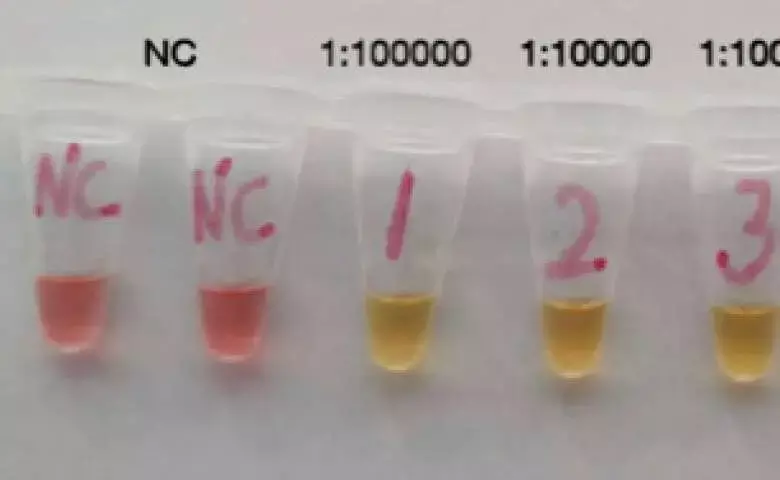- Home
- Medical news & Guidelines
- Anesthesiology
- Cardiology and CTVS
- Critical Care
- Dentistry
- Dermatology
- Diabetes and Endocrinology
- ENT
- Gastroenterology
- Medicine
- Nephrology
- Neurology
- Obstretics-Gynaecology
- Oncology
- Ophthalmology
- Orthopaedics
- Pediatrics-Neonatology
- Psychiatry
- Pulmonology
- Radiology
- Surgery
- Urology
- Laboratory Medicine
- Diet
- Nursing
- Paramedical
- Physiotherapy
- Health news
- Fact Check
- Bone Health Fact Check
- Brain Health Fact Check
- Cancer Related Fact Check
- Child Care Fact Check
- Dental and oral health fact check
- Diabetes and metabolic health fact check
- Diet and Nutrition Fact Check
- Eye and ENT Care Fact Check
- Fitness fact check
- Gut health fact check
- Heart health fact check
- Kidney health fact check
- Medical education fact check
- Men's health fact check
- Respiratory fact check
- Skin and hair care fact check
- Vaccine and Immunization fact check
- Women's health fact check
- AYUSH
- State News
- Andaman and Nicobar Islands
- Andhra Pradesh
- Arunachal Pradesh
- Assam
- Bihar
- Chandigarh
- Chattisgarh
- Dadra and Nagar Haveli
- Daman and Diu
- Delhi
- Goa
- Gujarat
- Haryana
- Himachal Pradesh
- Jammu & Kashmir
- Jharkhand
- Karnataka
- Kerala
- Ladakh
- Lakshadweep
- Madhya Pradesh
- Maharashtra
- Manipur
- Meghalaya
- Mizoram
- Nagaland
- Odisha
- Puducherry
- Punjab
- Rajasthan
- Sikkim
- Tamil Nadu
- Telangana
- Tripura
- Uttar Pradesh
- Uttrakhand
- West Bengal
- Medical Education
- Industry
Novel Covid 19 experimental test may deliver results in half an hour
 Credit: Karolinska Institutet
Credit: Karolinska InstitutetResearchers at Karolinska Institutet in Sweden along with researchers in China have developed new diagnostic test for COVID-19 that can be performed without advanced laboratory equipment and deliver the result in about half an hour.The study has been published in the journal Clinical Chemistry.
The researchers have developed an experimental COVID-19 test with promising results and are now working on verifying the test results on confirmed COVID-19 patients at the Karolinska University Hospital.
Polymerase chain reaction (PCR) testing for SARS-CoV-2 is currently the most effective frontline test to detect exposure and infection. A positive test, taken from a nasal sample, is presumptive evidence of disease. The PCR-method makes it possible to find very small quantities of a pathogen. However, the analyses require trained personnel and sophisticated laboratory equipment that can alternate between different temperatures, and it takes at least two hours to get a result. Therefore, there is a significant need for rapid and accurate testing methods for COVID-19 that can be carried out onsite also during basic conditions.
The researchers have adapted a technique called loop-mediated isothermal amplification (LAMP) specifically for the new coronavirus. The technique makes it possible to amplify the virus' RNA at a constant temperature of 65 degrees Celsius and to see a reaction in only 20 to 40 minutes.
"One big advantage with our test is that it is fast, and you can perform it under basic conditions," says Vicent Pelechano, researcher at the Department of Microbiology, Tumor and Cell Biology and SciLifeLab at Karolinska Institutet and one of the study's authors. "All you need is a test tube containing the primers, a hotplate, a thermometer and a pot of water. This makes it especially suitable for regions that lack advanced analytical equipment, such as war-torn areas or refugee camps."
By combining primers optimized specifically for SARS-CoV-2 with a specific gene of the virus, the researchers were able to detect as little as 10 copies of the virus gene, which is in line with detection limits of the PCR-method. The technique can be combined with a pH-indicator, which changes the color of the reaction mix from pink (alkaline) to yellow (acidic) if the sample is positive for SARS-CoV-2.
"The color-indicator makes it extremely easy to see if a sample is positive or negative," Vicent Pelechano says. "That could be a decisive factor if you lack specialized equipment to check the reaction."
Most of the study was done using optimized gene sequences of the virus. In addition, a total of 248 samples from confirmed COVID-19 patients in China were tested, of which 89.9 percent came back positive using the LAMP-test. The remaining 10.1 percent were deemed to have such low viral loads that they came back negative.
Verification studies underway
Additional research is currently underway at Karolinska University Hospital to verify that the test works on real patients whose samples have not been purified by extracting a specific gene of the virus.
"We have showed that this technique works under optimal conditions in the lab, and we have seen promising results from the first studies on patients in China," Vicent Pelechano says. "Now, we need to make sure that the test also works under other conditions, such as on real COVID-19 patients in Sweden."
The researchers plan to make the reagents widely available to the community. Primers used in this paper can be requested for free delivery through xiushanyin@me.com.
The study has been financed by the LiaoNing Provence Key Research Project, Ganzhou COVID-19 Emergency Research Project, the Swedish Research Council, the Knut and Alice Wallenberg's Foundation, the Ragnar Söderberg Foundation, Karolinska Institutet and STINT.
For further reference log on to:
"Rapid detection of COVID-19 coronavirus using a reverse transcriptional loop-mediated isothermal amplification (RT-LAMP) diagnostic platform," Lin Yu, Shanshan Wu, Xiaowen Hao, Xue Dong, Lingling Mao, Vicent Pelechano, Wei-Hua Chen, Xiushan Yin, Clinical Chemistry, online April 21, 2020, doi: 10.1093/clinchem/hvaa102
Dr Kamal Kant Kohli-MBBS, DTCD- a chest specialist with more than 30 years of practice and a flair for writing clinical articles, Dr Kamal Kant Kohli joined Medical Dialogues as a Chief Editor of Medical News. Besides writing articles, as an editor, he proofreads and verifies all the medical content published on Medical Dialogues including those coming from journals, studies,medical conferences,guidelines etc. Email: drkohli@medicaldialogues.in. Contact no. 011-43720751


